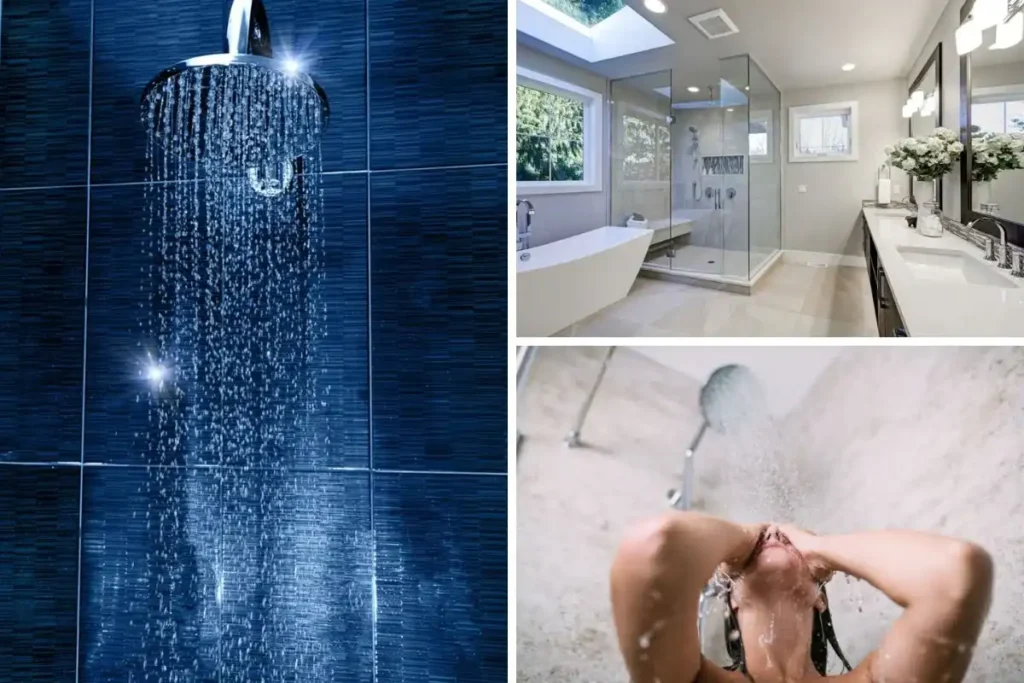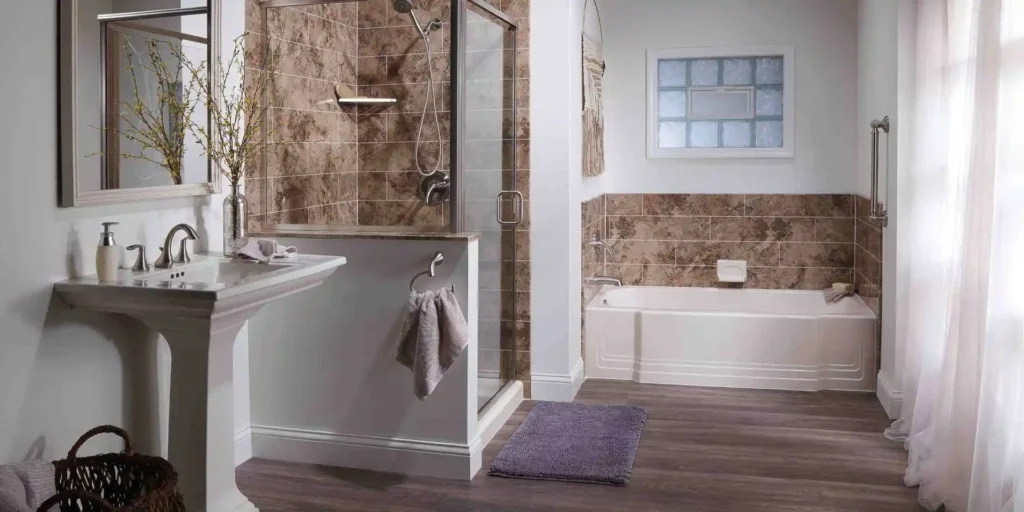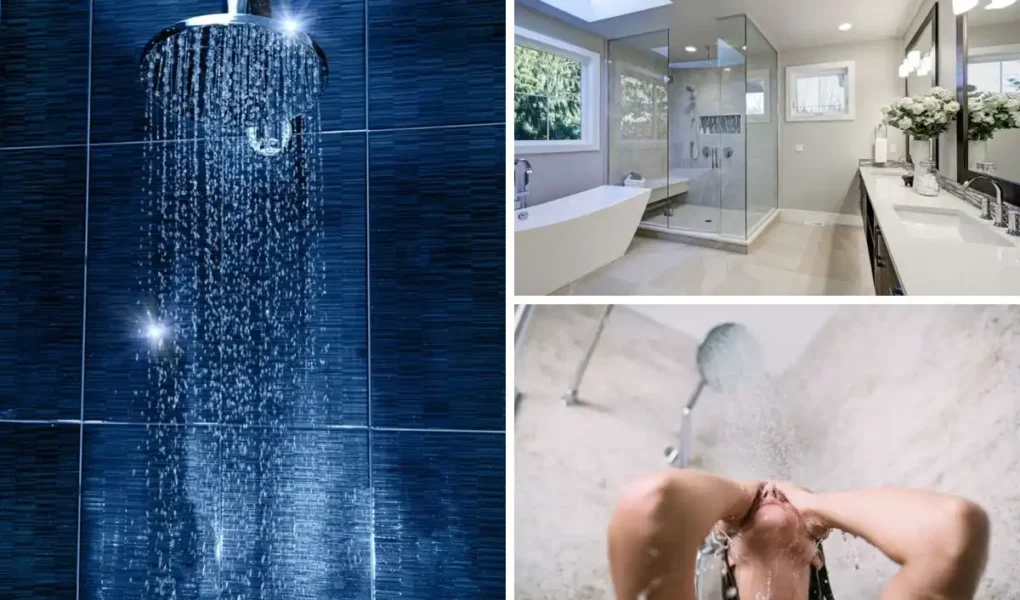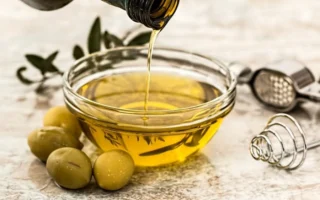Showers have become integral modern bathrooms, offering a place to cleanse a sanctuary for relaxation and rejuvenation. Images of showers are preferred to inspire homeowners and designers alike, showcasing the vast array of styles and features available today. In this guide, we’ll explore the different types of showers, their unique features, and how to choose the right one for your space. Whether you’re renovating your bathroom or simply curious about the latest trends, this article will provide valuable insights and inspiration.
This article provides various showers, from traditional setups to luxurious steam showers. Each type offers unique features and benefits, allowing you to find the perfect fit for your bathroom.
This article provides a detailed exploration of shower types, offering readers valuable insights and inspiration for their bathroom projects.
Understanding Showers
What Constitutes a Shower?
A shower is a plumbing fixture designed to spray water over a person for bathing. Unlike baths, showers use a continuous flow of water, making them a quick and efficient way to clean oneself. Over the years, showers have evolved from simple overhead fixtures to sophisticated systems with multiple settings and features.
The Evolution of Showers in Home Design
The design of showers has come a long way from the basic setups of the past. Showers are not only about functionality but also about enhancing the aesthetic appeal of a bathroom. With advancements in technology and design, showers now offer a range of features such as adjustable spray patterns, temperature controls, and even integrated lighting and sound systems.
Importance of Choosing the Right Shower
Selecting the right type of shower is crucial for functionality and aesthetics. A well-chosen shower can enhance the overall look of your bathroom, improve your daily routine, and even increase the value of your home. It’s important to consider factors such as space, style, and personal preferences when making your choice.
Types of Showers

Different features and benefits are discussed.
Traditional Showers
Traditional showers are the most common type found in homes. They typically consist of a showerhead mounted on the wall, with controls for adjusting water temperature and pressure which are straightforward and functional, making them a popular choice for many households.
Traditional showers often come with a variety of showerhead options, including fixed, handheld, and rain showerheads. They may also include features like adjustable spray patterns and water-saving settings. The controls are usually simple, with separate knobs or a single lever for temperature and flow adjustment.
Shower Tubs
Shower tubs combine the functionality of a shower and a bathtub in one unit. This setup is ideal for those who want the option of a quick shower or a relaxing bath without needing separate fixtures.
One of the main advantages of shower tubs is their space-saving design. They are perfect for smaller bathrooms where space is limited. Additionally, they offer versatility, allowing users to choose between a shower or a bath depending on their mood or needs.
Walk-In Showers
Walk-in showers are becoming increasingly popular due to their sleek design and ease of access. These showers are typically doorless and feature a seamless transition from the bathroom floor to the shower area.
Walk-in showers offer a range of design possibilities, including frameless glass doors, a variety of tile options, and customizable layouts. They can be tailored to fit any bathroom size and style, making them a versatile choice for modern homes.
Steam Showers
Steam showers are luxurious fixtures that combine the benefits of a traditional shower with the soothing effects of a steam room. They are equipped with a steam generator that produces steam to fill the shower enclosure. They offer numerous health benefits, including relaxation, improved circulation, and relief from muscle tension. They can also help with respiratory issues by opening up airways and promoting deep breathing. Outdoor Showers
Outdoor showers are designed for use in open-air environments, often found in beach houses or homes with pools. They provide a convenient way to rinse off before or after swimming and can add a unique touch to your outdoor space
When designing an outdoor shower, it’s important to consider materials that can withstand the elements, such as stainless steel or weather-resistant wood. Privacy is also a key factor, which can be achieved with strategic placement or the use of screens and enclosures.
Shower Panels
Shower panels are modern alternatives to traditional shower setups, featuring a vertical panel with multiple jets and controls. They offer a spa-like experience with customizable water flow and temperature settings.
Shower panels often include features such as rainfall showerheads, handheld sprayers, and body jets. They may also have digital controls for precise temperature and pressure adjustments, making them a high-tech addition to any bathroom.
Choosing the Right Shower for Your Space

Factors to Consider
When selecting a shower, consider the following factors:
- Ensure the shower fits comfortably within your bathroom layout.
- Check if your existing plumbing can accommodate the new shower type.
- Consider your lifestyle and preferences, such as the need for a quick shower or a relaxing bath.
Style Considerations
Matching your shower style with your bathroom decor is essential for a cohesive look. Consider the overall theme of your bathroom, whether it’s modern, traditional, or eclectic, and choose a shower that complements it.
Budgeting for Your Shower
Budgeting is a crucial step in choosing a shower. Consider the cost of the shower unit, installation, and any additional features you may want. Here are some tips for budgeting:
- Set a Realistic Budget: Determine how much you’re willing to spend on the shower and installation.
- Compare Prices: Look at different brands and models to find the best value for your money.
- Consider Long-Term Costs: Factor in maintenance and potential repairs when budgeting.
Maintenance Tips for Different Shower Types
Cleaning Techniques
Proper cleaning is essential to maintain the appearance and functionality of your shower. Here are some tips for different materials:
- Use a mild cleaner and a soft brush to scrub grout lines and tiles.
- Clean with a vinegar and water solution to prevent water spots and soap scum on glass.
- Avoid abrasive cleaners that can scratch the acrylic surface; use a gentle soap and water solution instead.
Preventing Mold and Mildew
Mold and mildew can be a common issue in showers due to the damp environment. Here are some preventive measures:
- Ensure your bathroom is well-ventilated to reduce moisture buildup.
- Clean your shower regularly to prevent mold growth.
- Apply a sealant to grout lines to prevent moisture penetration.
We’d love to hear from you! Share your favorite types of showers or images in the comments section below. Don’t forget to subscribe to our blog for more home improvement tips and inspiration. Happy showering!




